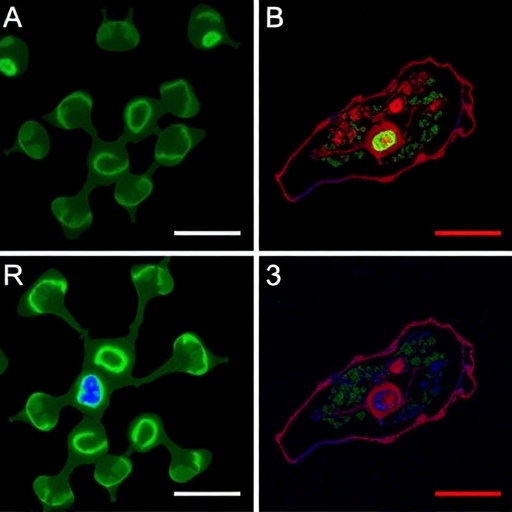By using images of the brain to look at how its outer surface is folded on itself, researchers can predict which high-risk patients will develop psychosis with more than 80 per cent accuracy. Before now, there has been no way to examine young people before they become ill to reliably identify who will develop acute psychosis and who will not.
Researchers from Western University and Lawson Health Research Institute in London, Ontario collaborated with scientists at the University of Basel in Switzerland to develop an approach using magnetic resonance imaging (MRI) of the brain that can identify which patients with pre-psychotic symptoms will go on to develop full-blown psychosis. The hope is that this information can then be used to begin early-intervention therapy with these patients before they develop illness.
"We not only know that early intervention works, but many interventions for psychosis work only if they are given early enough," said Dr. Lena Palaniyappan, associate professor at Western's Schulich School of Medicine & Dentistry and Robarts Research Institute, and associate scientist at Lawson Health Research Institute.
"If we can identify patients early, before they drop-out of schools or lose their jobs due to a psychotic episode, we can reverse the trajectory of this illness.
In the study published today in the journal JAMA Psychiatry, the researchers collected MRI data from a group of 161 participants in Switzerland. 44 healthy control subjects, 38 patients with first-episode psychosis (characterized by brief hallucinations or delusions), and 79 people with an increased risk of psychosis. The researchers followed the participants for four years to determine which of those patients developed psychotic disorders like schizophrenia, and which did not. The researchers point out that approximately 1 in 7 young people experience psychosis-risk symptoms, but only one per cent will develop long-standing psychotic disorders such as schizophrenia.
"Currently there is no tool available for clinicians to pin-point which of those who are at risk, will go on to develop psychosis," said Tushar Das, a postdoctoral fellow in Dr. Palaniyappan's lab. "Our end goal is to apply this to the clinic. Our idea would be to identify these patients before they fall into a psychotic illness."
The researchers looked specifically at the structural relationship in the brain determined by the way that the brain is folded inside the skull, also known as gyrification. "The human brain is not the largest of the mammals – elephants and dolphins have larger brains than we do, but our brain is much more folded than other species' brains, and that is because it is the most economical way to send signals across a constantly busy system," said Dr. Palaniyappan, noting that this folding pattern is mostly developed by the time a person is two years old.
Video of Dr. Palaniyappan explaining the work can be found here: https://youtu.be/DVzmFmCoa-s
The researchers note that this may also point to the fact that psychotic illness is largely developmental rather than degenerative. "In search of the neural mechanisms that contribute to emerging psychosis, developmental processes are increasingly be recognized to be crucial," the researchers said in the study.
###
MEDIA CONTACT: Crystal Mackay, Media Relations Officer, Schulich School of Medicine & Dentistry, Western University, t. 519.661.2111 ext. 80387, c. 519.933.5944, [email protected] @CrystalMackay
ABOUT WESTERN
Western delivers an academic experience second to none. Since 1878, The Western Experience has combined academic excellence with life-long opportunities for intellectual, social and cultural growth in order to better serve our communities. Our research excellence expands knowledge and drives discovery with real-world application. Western attracts individuals with a broad worldview, seeking to study, influence and lead in the international community.
ABOUT THE SCHULICH SCHOOL OF MEDICINE & DENTISTRY
The Schulich School of Medicine & Dentistry at Western University is one of Canada's preeminent medical and dental schools. Established in 1881, it was one of the founding schools of Western University and is known for being the birthplace of family medicine in Canada. For more than 130 years, the School has demonstrated a commitment to academic excellence and a passion for scientific discovery.
ABOUT LAWSON HEALTH RESEARCH INSTITUTE
As the research institute of London Health Sciences Centre and St. Joseph's Health Care London, and working in partnership with Western University, Lawson Health Research Institute is committed to furthering scientific knowledge to advance health care around the world.
Media Contact
Crystal Mackay
[email protected]
519-933-5944
@mediawesternu
http://www.uwo.ca
http://mediarelations.uwo.ca/2018/04/25/brain-folded-provides-researchers-accurate-marker-predict-psychosis-high-risk-patients/
Related Journal Article
http://dx.doi.org/10.1001/jamapsychiatry.2018.0391




